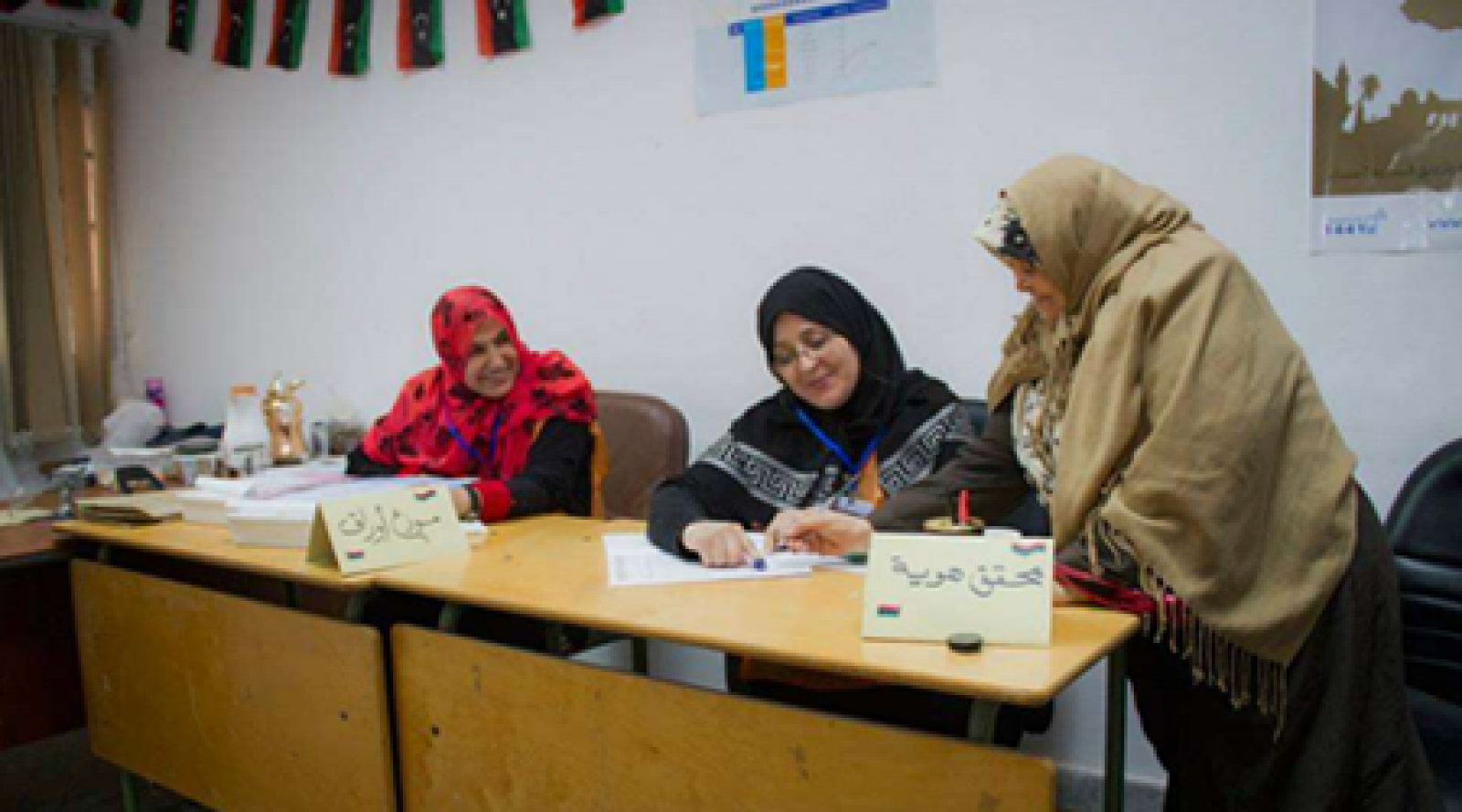
SHARE
ISSUES
As Libya prepares to draft its new constitution, a new public opinion survey shows that a majority of Libyans balance their optimism about the country’s future with immediate concerns over their personal safety.
A majority of Libyans believe that the country’s situation in three years will be better than before the 2011 uprising and conflict, but in recent months respondents have grown more critical of governing institutions and political leaders. The survey also explores citizens’ opinions on the constitution-drafting process, the General National Congress (GNC) and regional autonomy.
Most Libyans view the GNC, leaders and political parties with increasing negativity, and they are dissatisfied with the quality of public services. Citizens are also placing a greater emphasis on the need to disarm militias as a step toward improving the security situation. Despite these frustrations, Libyans remain optimistic about the country’s future and continue to believe that democracy constitutes the best form of government. The findings also indicate widespread disapproval of regional and tribal leaders’ efforts to pursue regional autonomy.
NDI, in partnership with Copenhagen-based JMW Consulting and the Libyan firm Diwan for Market Research, surveyed 1,200 randomly selected Libyans, ages 18 and older, from Nov. 10 to Dec. 8, 2013. The nationwide survey is the third in a series launched in May 2013 to evaluate changes in Libyan public opinion as the political transition proceeds. The surveys have provided leaders in political parties, civil society organizations and the government with timely, relevant information on public opinion that can inform policies and make them more responsive to citizens’ interests and needs.
Some key findings from the poll:
- Libyans continue to be deeply concerned about the country’s security and stability. The vast majority continue to view disarmament of militias, political stability and personal security as the most important issues.
- A majority of Libyans do not support claims to regional autonomy. They largely reject the declarations of regional autonomy made by the Cyrenaican Political Bureau in Libya’s East and by tribal leaders in the South. Even within these two regions, majorities disapprove of the declarations. A majority of Libyans also view the seizure of oil production facilities by armed groups as unjustified.
- One-third of Libyans feel unsafe when traveling to work, school, the mosque and the market. Similarly, only 49 percent feel “very safe” in their own homes and 61 percent feel unsafe when traveling by bus or taxi.
- Popular support for democracy remains high, with 80 percent saying they believe it is the best form of government. Ninety-one percent of Libyans characterize democracy as involving protection of rights and freedoms or elections. These attitudes are largely unchanged from findings in earlier surveys.
- Political institutions such as GNC, political parties and political leaders evoke increasingly negative views. Forty-seven percent of Libyans now believe that parties are not necessary for democracy, compared to only 14 percent who held this opinion in May 2013. Political leaders across the board have seen declining favorability ratings, and satisfaction with the GNC has fallen. Sixty-eight percent now describe the GNC’s performance as poor; a 32-point decrease in the congress’ perceived performance rating since May 2013.
- Among international organizations, the United Nations (UN) is viewed the most favorably by Libyans. Sixty-four percent have a positive view of the UN and 83 percent believe their country should cooperate with the UN to ensure political stability and security.
Read more:
Published March 14, 2014


